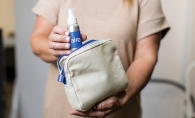At age 16, John witnessed his father drink himself to death, before becoming an alcoholic himself. Eva was told by her doctor, “If you don’t stop drinking, you’ll probably die within a year.” Russell was 50 pounds underweight, living in his car, drinking mouthwash and having seizures. Today, all three are sober and living productive lives, in large part because of an internationally renowned recovery center in Wayzata called the Retreat. Nestled in the woods between a grocery store and a pizza joint, the Retreat is a nonprofit organization celebrating 15 years of helping people from all walks of life and from all over the world recover from alcohol and chemical dependency. In Wayzata, it provides both resident and day and evening programs for men, women and families working toward recovery, and has sober homes for both men and women in St. Paul. It is highly regarded because of the unique model it uses for its guests. “You can save more lives with less money and do it without breaking the family bank,” explains John Curtiss, president and CEO. One key difference in the Retreat’s model is the “unbundling” of services. Treatment centers will often run a battery of medical and psychological tests–a comprehensive assessment process. These tests are tied to the managed health industry, which requires centers to prove that treatment is necessary, adding to the cost for the person struggling with addiction. These types of tests are helpful for some, but are wasted on others. “Eighty percent of the people who come here have been to one to five previous treatments,” Curtiss says. “They know they have the problem.” While a full program at other treatment centers can easily run upward of $30,000 for a 30-day stay, the Retreat, a supportive educational center, costs less than $5,000. Curtiss, a former member of the executive leadership team at Hazelden, who helped found the Retreat with George Mann, explains, “Our outcomes are at or better than any program out there at a fraction of the cost.” Another unique aspect of the Retreat model is its community of volunteers. More than 400 people who have been helped by the Retreat volunteer each month. “Addicts are notoriously hard-headed people,” says John Leonard, director of marketing and intake, and a past Retreat guest. Having volunteers who are in recovery facilitate programs and sessions resonates with the guests, Leonard says. Eva Pickeral, the women’s admission coordinator/supervisor and another former guest, elaborates. “During the first week of the all-day programming, I thought [the facilitators] were counselors or staff, but they weren’t. They were volunteers. They were all people in recovery, and they had a level of credibility. They didn’t have a profit motive. It helped me trust and believe them.” Leonard sums it up: “Connection to the community is the magic dust” at the Retreat. It’s a community-based model The Retreat generously shares around the world. “We want to carry the message of hope and recovery,” Curtiss says about The Retreat’s willingness to help other organizations replicate its model, whether in South Dakota or Florida, Hong Kong or New Zealand. Russell Holm, intake and outreach coordinator and past guest at the Retreat, is blunt about what the organization has meant to him. “The Retreat truly saved my life. I owe everything to this place.” An alcoholic by age 19, Holm understands the damage addiction can cause. “It’s the constant and elaborate lying that really burns the family up –you keep telling yourself that tomorrow will be better,” he says. “How long can you live with that?” Now sober and enjoying a healthy family life, Holm is a walking testament to the effectiveness of the Retreat for those who are ready to create a better future. The goal, Leonard shares, is for guests “to get it together and then be able to follow their dreams.”
Menu
From the October 2013 issue
Rebuilding Lives for 15 Years at the Retreat
The Retreat rebuilds lives once destroyed by alcohol and chemical dependency.
The peaceful woods adjacent to The Retreat provide the perfect spot for a walk.








